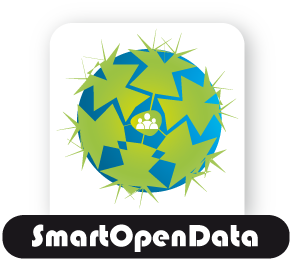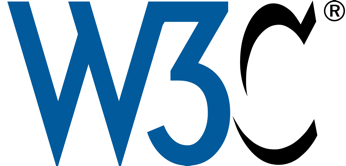Call for Participation
What are best examples of data-driven Web applications you've ever seen? The updates to Open Street Map after the Haiti earthquake? The mapping of all 9,966,539 buildings in the Netherlands? The NHS Prescription data? Things like SF Park that help you 'park your car smarter' in San Francisco using real time data? Bing maps and Google Earth?
All these and many, many more data-driven applications have geospatial information at their core. Very often the common factor across multiple data sets is the location data, and maps are crucial in visualizing correlations between data sets that may otherwise be hidden.
It's this desire to work with multiple data sets in different formats about different topics and link those with the powerful technologies used in geospatial information systems that is behind the linking geospatial data workshop.
How can geographic information best be integrated with other data on the Web? How can we discover that different facts in different data sets relate to the same place, especially when 'place' can be expressed in different ways and at different levels of granularity?
On behalf of the Smart Open Data project, the World Wide Web Consortium (W3C), in partnership with the Open Geospatial Consortium (OGC) and the OGC GeoSPARQL Standards Working Group, the UK Government Linked Data Working Group, Google and Ordnance Survey, invite you to share your experiences, successes and frustrations in using GI.
The workshop is open to all and will take place at Campus London on Wednesday 5th - Thursday 6th March, 2014.
Background
Geographic information (GI) is a major element in defining context for knowledge that can then be exposed in many different ways to end users. The societal, economic and scientific benefits of integrating GI into commercial and institutional processes is potentially huge. Therefore, having a clear strategy as to how GI is best integrated with data on the Web is paramount to the fulfillment of this vision. Commercial operators, including search engines, invest a great deal of time and effort in generating geographical databases which are mirrors to Web content with the geographical context often added manually or at best semi-automatically. This process would be substantially aided if data were published on the Web with the appropriate geographic information at the source, thus allowing discovery and access using the standard mechanisms of the Web.
This use of appropriate markup to create a substantial network effect is of acute importance in the public sector. Clear guidance on the minting and use of URIs as identifiers in geographical and environmental data in line with the INSPIRE directive is therefore needed and likely to have a high impact.
Workshop topics
The Smart Open Data Project is one example of many efforts being made to integrate Linked Data with geospatial data. The GeoSPARQL standard is well established but alternatives have been proposed. Europe's INSPIRE guidelines have recently been amended to encourage the use of HTTP URIs as identifiers as well as GUIDs—which is the usual choice of identifier type in GI systems—but is the use of URIs enough?
Topics for the workshop include, but are not limited to:
- usage scenarios, where geospatial information and other data sources need to be used together;
- identifying and presenting layers of information about a specific location;
- providing integrated information for users with different accessibility needs and device types;
- the GI and Web integration technology landscape - problems encountered, solutions found or missing;
- mappings /links between the SDI models, registers / registries and semantic ontologies;
- the gaps and overlaps in the standards used in integrating GI and other data formats;
- tools, guidelines and practices that can ease the integration of GI on the Web,
- multilingual aspects.
The outcomes of this workshop may lead to the chartering of new standardization work, development of best practices, networks and/or vocabularies.
Expected participation
To ensure productive discussions, the Workshop will include sessions which are primarily technical, but grounded in business needs.
The sessions will be conducted in English; we will do our best to
accommodate special needs, but signing and continuous translation
will not be available.
We invite representatives from following communities to submit
papers, although this is not intended to be an exhaustive list:
- geospatial data publishers and integrators;
- non-geospatial data publishers and integrators;
- online map makers and data visualization creators;
- open data activists.
See details of how to participate
Press representatives should contact w3t-pr@w3.org.
Hash Tag
The hashtag for the event is #lgd14. Tweets with this hash tag may be quoted in the report of this event.
Partners



The event is co-organized by the UK Government, Ordnance Survey, the OGC and Google.
Important Dates
Today
Expression of interest — please send a short e-mail to Phil Archer ASAP.
19 January 2014:
Deadline for Position Papers
(EasyChair submission)
5 February 2014:
Acceptance notification and registration instructions sent.
Program and position papers posted on the workshop website.
5th March 2014, 09:00
Workshop begins
19:00 - 22:00 Recommended evening event: London Open Data Meetup at the Open Knowledge Foundation
6th March 17:00
Workshop ends
